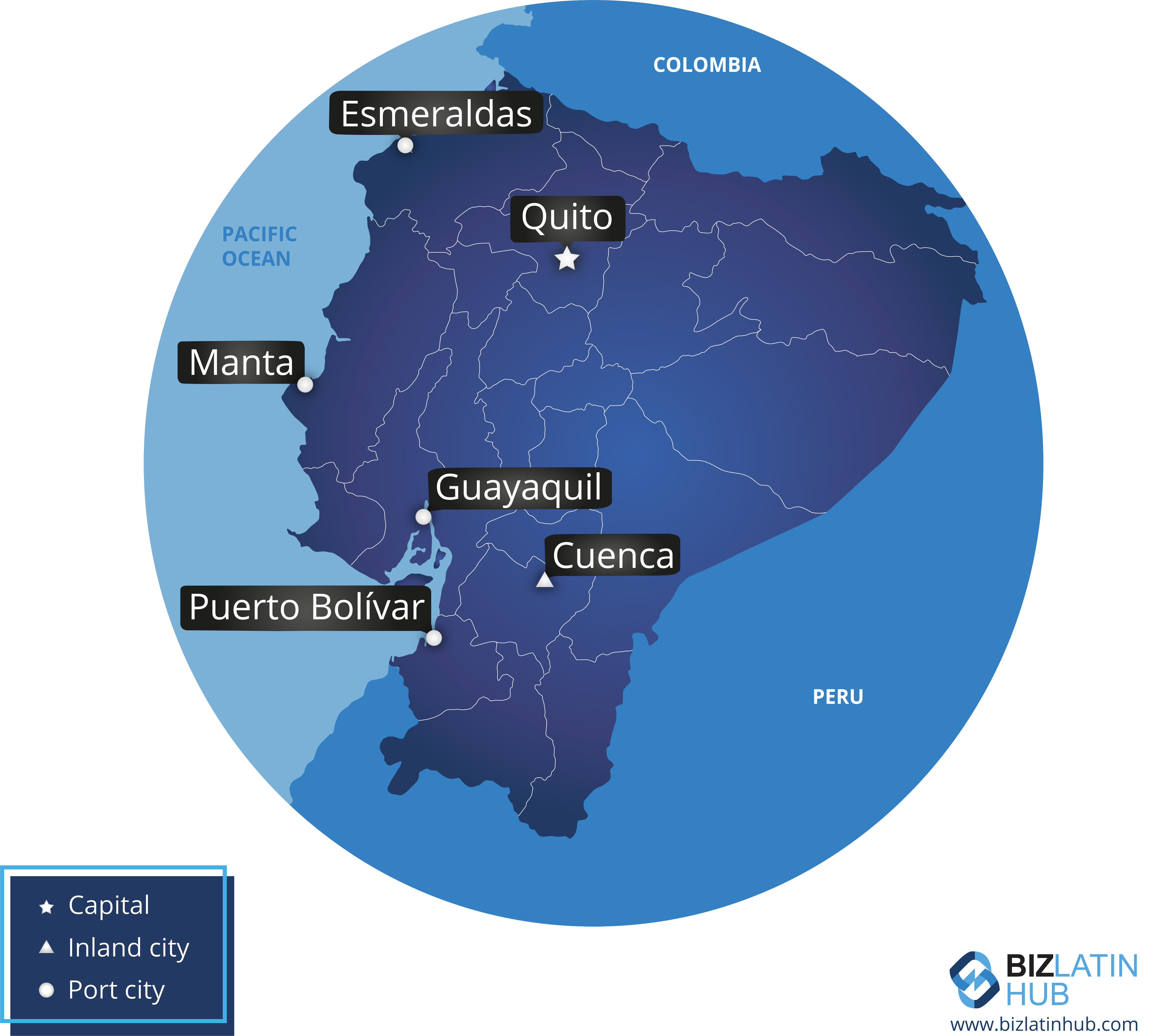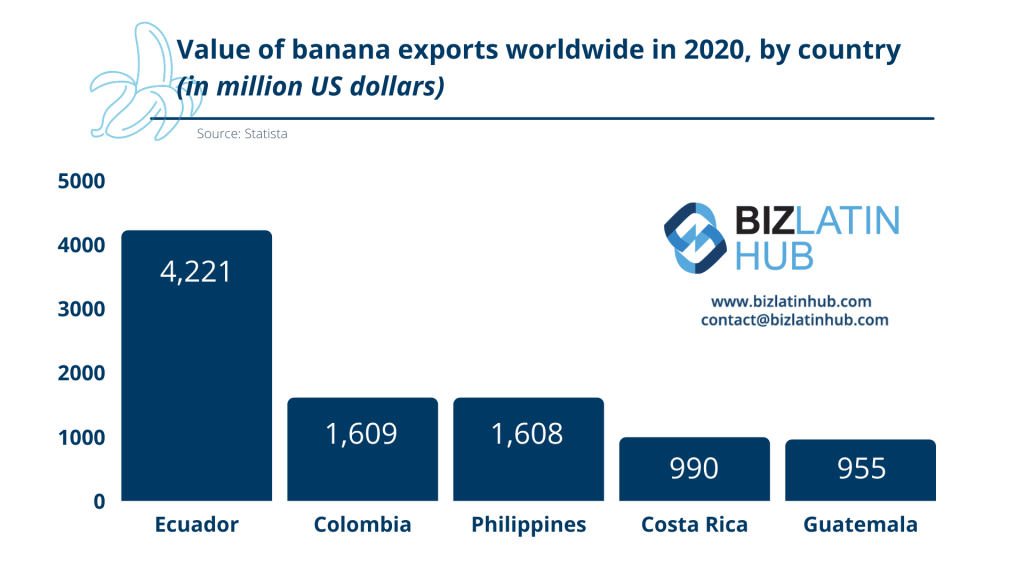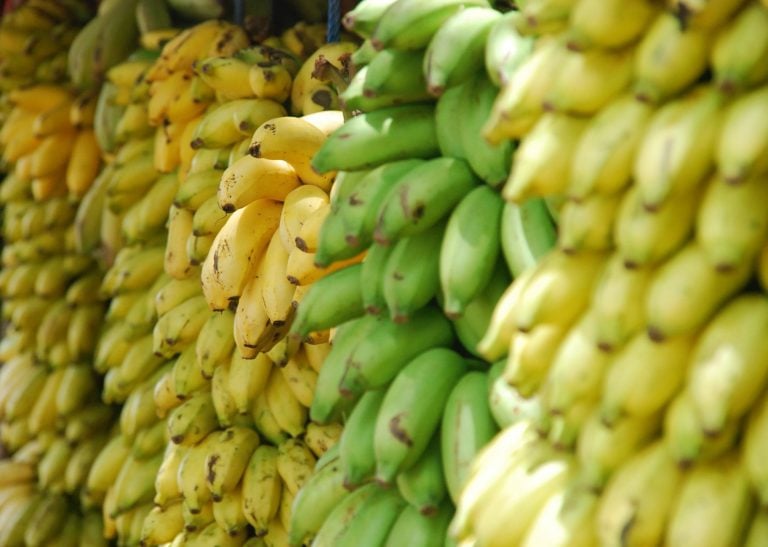Exports of Ecuador bananas to China are poised for significant growth following a 2024 memorandum of understanding (MOU) for bilateral free trade agreement (FTA) negotiations. Ecuador (global rank: #1 banana exporter; 2023 export value: $3.79B) dominates the international banana trade, with 244.10M boxes exported January-August 2024. Key market distribution: EU (30.02%), Russia (18.44%), Middle East (13.29%), US (12.73%). The nation’s overall trade performance shows robust growth, with 2021 figures reporting exports at $26.7B, imports at $23.83B, yielding a $2.87B trade surplus.

However, the industry faces several significant challenges in recent years. Climate-related issues have impacted productivity, with yield ratios dropping from 1.5 to 1.3, affecting overall production efficiency. Additionally, global logistics disruptions, particularly restrictions at the Panama Canal and complications in Red Sea routes, have created new hurdles for exporters. The industry has adapted by optimizing its port utilization, with Guayaquil handling 49.32% of shipments, followed by Posorja at 28.75% and Bolívar at 22.93%.
The sector has also seen notable price developments, with box prices set to increase to $7.25 starting 2025, up from the current $6.85 per box, reflecting both market pressures and rising production costs. This price adjustment comes as major industry players such as Favorita Fruit Company, Noboa Group, and Dole Food Company work to maintain Ecuador’s competitive position in the global market.
Despite these challenges, the industry shows promising growth potential, particularly in the organic banana market segment and through the development of new market opportunities. Ongoing infrastructure improvements and sustainability initiatives are helping to strengthen Ecuador’s position as the world’s premier banana exporter.
Market Distribution and Export Performance
According to Fresh Fruit Portal, from January to August 2024, Ecuador’s banana exports reached 244.10 million boxes. The current market distribution shows the European Union as the largest market, accounting for 30.02% of exports, followed by Russia at 18.44%, the Middle East at 13.29%, and the United States at 12.73%.

Market Challenges and Industry Dynamics
The industry faces significant challenges, including climate-related issues that have impacted productivity, with yield ratios dropping from 1.5 to 1.3, affecting overall production efficiency. Additionally, global logistics disruptions, particularly restrictions at the Panama Canal and complications in Red Sea routes, have created new hurdles for exporters. The industry has adapted by optimizing its port utilization, with Guayaquil handling 49.32% of shipments, followed by Posorja at 28.75% and Bolívar at 22.93%.
The sector has also seen notable price developments, with box prices set to increase to $7.25 starting 2025, up from the current $6.85 per box, reflecting both market pressures and rising production costs.
Major Industry Players
The Ecuadorian banana industry is dominated by several key players, including Favorita Fruit Company, Noboa Group, and Dole Food Company. These companies have been instrumental in maintaining Ecuador’s position in the global market despite recent challenges.
Future Outlook and Sustainability
The industry shows promising growth potential, particularly in the organic banana market segment and through the development of new market opportunities. Ongoing infrastructure improvements and sustainability initiatives are helping to strengthen Ecuador’s position as the world’s premier banana exporter.
Ecuador bananas among numerous exports with strong prospects
The country’s overall exports grew by 31% in 2021 compared to the previous year, with a 23% increase in seafood exports. This growth came despite the turmoil caused by the global shipping crisis seen in 2021, which massively disrupted international shipping. The strong prospects for exports of Ecuador bananas are matched by encouraging signs across the country’s export economy. The industry’s resilience is particularly noteworthy given the recent challenges in global shipping and logistics. The sector continues to adapt and evolve, with particular focus on sustainable practices and market diversification.
Among the emerging export commodities that have seen strong performance is cacao, which generated $950 million in 2021 – a $15 million increase on the previous year and new record for the crop.
The strong showing of Ecuador’s export economy saw the country register a trade surplus of more than $2.87 billion in 2021, with imports totalling $23.83 billion, while exports stood at $26.7 billion.
Ecuador attracting interest among investors
Ecuador has demonstrated remarkable economic resilience through 2024, despite global challenges. Under President Daniel Noboa’s administration, which began in late 2023, the country has implemented new economic reforms aimed at strengthening foreign investment and improving business conditions.
The country has particularly focused on modernizing its port infrastructure, with significant investments in the ports of Guayaquil, Posorja, and Bolívar. These improvements have been crucial for maintaining Ecuador’s position as a major export hub, especially for its banana industry.
Ecuador has strengthened its trade relationships through various initiatives, including the implementation of trade agreements with China and continued participation in the Andean Community of Nations (CAN). The country has also made progress in its application to join the Pacific Alliance, which would further integrate it with the dynamic economies of Chile, Colombia, Mexico, and Peru.
The port of Guayaquil, which handles nearly half of the country’s banana exports, has undergone significant modernization with new digital systems and improved cargo handling capabilities. These improvements have helped maintain efficient operations despite global shipping challenges, including the recent disruptions in the Panama Canal and Red Sea routes.
Ecuador’s dollarized economy continues to provide stability and attract foreign investment, particularly in the agricultural and logistics sectors. The country has also made strides in sustainable development, with new initiatives focusing on environmental protection and sustainable farming practices. This commitment to sustainability, combined with strategic infrastructure investments and stable monetary policy, has helped maintain Ecuador’s position as an attractive destination for foreign investment in Latin America.
Biz Latin Hub can assist you doing business in Ecuador
Biz Latin Hub is a professional services company providing integrated market entry and back office services throughout Latin America and the Caribbean, with offices in 16 major cities around the region.
We specialize in multi-jurisdiction market entries and operational support, including the likes of cross border tax planning.
Our portfolio of services includes accounting & taxation, company formation, and corporate legal services, among others, and we have a team of experienced professionals ready to assist you in Ecuador.
Contact us today to find out more about how we can help you.





